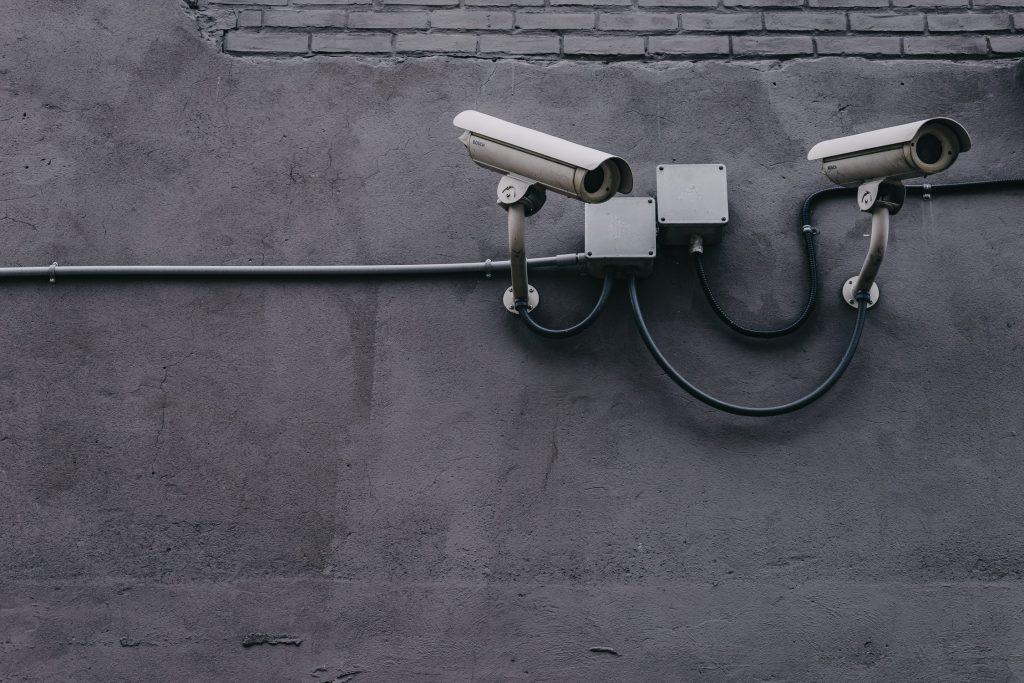11 Foucault’s Influence: The Physics of Power
Sumaiya Akhter Nitu
Jefferson, N., & Smith-Peterson, M. (2021). The physics of power: Stories of panopticism at two levels of the school system. Theory, Research, and Action in Urban Education, 6(1), n.p. https://traue.commons.gc.cuny.edu/the-physics-of-power-stories-of-panopticism-at-two-levels-of-the-school-system/

Power and Discipline
Michel Foucault’s notion of power connotes the disciplinary internalization in society in Discipline and Punish (Foucault, 1995). He describes the usage of power by the hierarchy who makes disciplines so that society is regulated in order, in fear of repercussions because with discipline comes punishment. Power is structured in every type of institutions and is ‘immortal’. The society has been constructed using power in a way that every individual is disciplined. Foucault used Jeremy Bentham’s panopticon prison to illustrate the importance of power. Just like the panopticon prison, power has its eyes watching every individual 24/7.
Panopticism
In the paper, “The Physics of Power: Stories of Panopticism at Two Levels of the School System,” the two educators, Jefferson and Smith-Peterson, portray the stories of their lived experiences using panopticism at the two levels of the school system. Jefferson discusses about the panoptic surveillance in the classroom and his role as a disciplinary educator, whereas, Smith-Peterson as a district administrator, discusses how the hierarchical networks function and effect the district level. However, in doing so, they both draw Simon Browne’s (2015) concept of racializing surveillance to highlight the use of power to maintain racial oppression within the education system.
Efficient Machine
Surveillance in classrooms work in various ways to ensure that students are in equilibrium state. The environment and architecture of the classroom has been designed in a manner so that teachers are aware of the students’ presence and activities.
Jefferson mentions that in order to discipline his students’ behavior and actions he had to be stern and impose rules and limits on them. By default, students are ingrained with the thoughts that if they reject any rules or cross their limits, they would face serious consequences. The teacher acts as a surveillance to make sure that all the students are in proper order. Thus, disciplinary actions with rules, regulations and punishment are instilled within students, so that they act as “efficient machine” (Foucault, 1995) without breaking the norm.
Docility
Jefferson also adds how being a surveillance and upholding his authorial power, he is only abiding by the scripts he is mandated to follow. Furthermore, the students are not the only ones who are being watched through the surveillance, but the teachers too. Every actions of the teachers are being monitored and recorded to ensure that they do not act off the scripts in order to play their roles as educators. Nevertheless, the concept of discipline and punishment exists in the classroom for the emergence of docility among students and teachers. Docility escalates more on the students’ side when Jefferson being the white male teacher, surveils and uses discipline and punish in a classroom where the majority are students of color, which also highlights Simon Browne’s (2015) concept of racializing surveillance and reflects the present situation of race and anti-blackness in society (2021).
Being Observed
According to Smith-Peterson, the central offices of large, urban school districts are mostly situated in locations, which are in poor economic, depressing and racially segregated areas. These racially segregated schools are targeted to be surveilled more than the other schools. Therefore, rigid monitoring is employed on them to produce more docility and to make them behave properly in order to be allowed to have the pass to enter across the city from being in ‘quarantine city’ (2021).
Smith-Peterson, also adds that it is not only the teachers and students who are victims of power, discipline and punishment. Each level of the ladder of power within the school system works in a way that every individual has roles to play and act as surveillance. Students are surveilled by the teachers, teachers are surveilled by the Principals, who are then monitored by the Lead Administrator. The Superintendent assesses the Lead Administrator and the school board members evaluates the Superintendent. Therefore, every level of the hierarchical pyramid of the school system is being observed in order to function like an ‘efficient machine’ (Foucault, 1995).
Autonomy
Michel Foucault reflected on the importance of power in shaping and functioning the society. He never explicitly conveyed if this notion of ‘discipline and punish’ is wrong or right. It is understandable that in order to run a nation or shape a society, equilibrium and orderliness is needed. However, isn’t this concept of students acting as ‘efficient machine’ or ‘robots’ creating absence of autonomy within them? Isn’t this disabling their creative power, their inquisitiveness and voices from being heard? We certainly do not aim to build a generation of students as ‘robots’ rather help them to be their own sovereign.
As a student and an educator from the context of Bangladesh, I have witnessed how some teachers clip off the wings of the future generation, which they are supposed to build and how nobody acknowledges the wrongness in this action. Moreover, teachers’ true voices are also unheard of when they need to act following the scripts and worry of being surveilled. Therefore, every level of the system is in constant tension of being surveilled by the panopticism, which enforces discipline in society.
References
Browne, S. (2015). Dark matters: On the surveillance of blackness. Duke University Press.
Foucault, M. (1995). Discipline and punish: The birth of the prison (2nd Vintage Books ed.). Vintage Books.
Jefferson, N., & Smith-Peterson, M. (2021). The physics of power: Stories of panopticism at two levels of the school system. Theory, Research, and Action in Urban Education, 6(1), n.p. https://traue.commons.gc.cuny.edu/the-physics-of-power-stories-of-panopticism-at-two-levels-of-theschool-system/
Media Attributions
- Two Grey Bullet Security Cameras © Scott Webb is licensed under a Public Domain license

